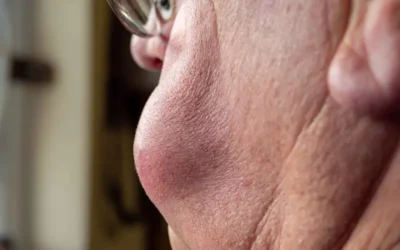Providers of laboratory and pathology services such as offices or free-standing facilities, hospitals, skilled nursing facilities and comprehensive outpatient rehabilitation facilities are impacted by several CPT code changes in 2017. Coding teams in reliable outsourcing companies that provide pathology medical coding and billing services are up-to-date with these code changes which include deletions, revisions and additions. Here is a summary of these updates:
-
- Molecular Pathology
Revisions have been made to Molecular Pathology Guidelines including the deletion of three Tier 1 Molecular Pathology CPT codes (81280-81282) and the addition of a new Tier 1 CPT code (81327) to report SEPT9 (Septin9) methylation analysis.
81327, SEPT9 (Septin9) (for e.g., colorectal cancer) methylation analysis.
- Molecular Pathology
- Genomic Sequencing Procedures and Other Molecular Multianalyte Assays
There are five new Genomic Sequencing Procedures CPT codes (81413, 81414, 81422, 81439, and 81539).81413, Cardiac ion channelopathies (eg, Brugada syndrome, long QT syndrome, short QT syndrome, catecholaminergic polymorphic ventricular tachycardia); genomic sequence analysis panel, must include sequencing of at least 10 genes, including ANK2, CASQ2, CAV3, KCNE1, KCNE2, KCHN2, KCNJ2, KCNQ1, RYR2, AND SCH5A.81414, This code has been added to describe testing for at least the two gene-sequence duplication (including KCNH2 and KCNQ1) and deletions listed in the code that may be associated with cardiac ion channelopathies.81439, Inherited cardiomyopathy (eg, hypertrophic cardiomyopathy, dilated cardiomyopathy, arrhythmogenic right ventricular cardiomyopathy) genomic sequence analysis panel. This new code should be used to report full genomic sequence analysis for least five genes, including DSG2, MYBPC3, MYH7, PKP2, and TTN, for the evaluation of genetic susceptibility to inherited cardiomyopathy conditions, which are chronic diseases of the heart muscle.81422, Fetal chromosomal microdeletion(s) genomic sequence analysis (eg, DiGeorge syndrome, Cri-du-chat syndrome), circulating cell-free fetal DNA in maternal blood that includes analysis of chromosomal microdeletion(s) associated with various conditions such as DiGeorge syndrome, which are not conditions described by 81420 for aneuploidy, which is an extra or deleted copy of a chromosome.81539, Oncology (high-grade prostate cancer), biochemical assay of four proteins (Total PSA, Free PSA, Intact PSA, and human kallikrein-2 [hK2]), utilizing plasma or serums, prognostic algorithm reported as a probability score.Code 81539 was created to replace the deleted administrative MAAA (Multianalyte Assays with Algorithmic Analyses) code 0010M. As with all MAAAs, the code describes both the lab test as well as an algorithm that uses the test results and possibly other patient data to calculate a risk score. In this case, the MAAA establishes a probability score for finding high-grade prostate cancer on biopsy.Note: Code 81439 should be used to report genomic sequencing panel testing for cardiomyopathies. Codes 81413, and 81414 should not be reported in conjunction with 81439 when performed on the same date of service). - Organ or Disease-Oriented PanelsNew Therapeutic Drug Assay Codes for 2017
Three new CPT codes (80305-80307) have replaced Five Presumptive Drug Class Screening CPT codes (80300-80304). The new codes to report presumptive testing eliminate the use of multiple drug classes to identify the type of presumptive testing procedure. These three new codes are intended for simple reporting of these procedures.80305, Drug test(s), presumptive, any number of drug classes, any number of devices or procedures (e.g, immunoassay); capable of being read by direct optical observation only (e.g., dipsticks, cups, cards, cartridges) includes sample validation when performed, per date of service.80306, Drug test(s), presumptive, any number of drug classes, any number of devices or procedures (e.g., immunoassay); read by instrument assisted direct optical observation (e.g., dipsticks, cups, cards, cartridges), includes sample validation when performed, per date of service.80307, Drug test(s), presumptive, any number of drug classes, any number of devices or procedures, by instrument chemistry analyzers (e.g., utilizing immunoassay [eg, EIA, ELISA, EMIT, FPIA, IA, KIMS, RIA]), chromatography (e.g., GC, HPLC), and mass spectrometry either with or without chromatography, (e.g., DART, DESI, GC-MS, GC-MS/MS, LC-MS, LC-MS/MS, LDTD, MALDI, TOF) includes sample.Note: Each of these new codes is reported only once, regardless of the number of procedures or drugs tested on any date of service. - Chemistry84410, Testosterone, bioavailable, direct measurement (e.g., differential precipitation). This code has been added for a direct measurement of bioavailable testosterone to the existing code family for testosterone measurements. The existing codes are 84402 for free testosterone, and 84403 for total testosterone. Bioavailable testosterone is the fraction in the blood that does not bind to sex hormone binding globulin (SHBG), but occurs loosely bound to albumin or as free hormone.
- Microbiology87483, Infectious agent detection by nucleic acid (DNA or RNA); central nervous system pathogen (e.g., Neisseria meningitidis, Streptococcus pneumoniae, Listeria, Haemophilus influenzae, E. coli, Streptococcus agalactiae, enterovirus, human parechovirus, herpes simplex virus type 1 and 2, human herpesvirus 6, cytomegalovirus, varicella zoster virus, Cryptococcus), includes multiplex reverse transcription, when performed, and multiplex amplified probe technique, multiple types or subtypes, 12-25 targets. This test may be ordered to screen for possible causative pathogens in patients exhibiting symptoms such as flu-like symptoms, headache, and stiff neck, possibly due to conditions such as meningitis or encephalitis.
- Cytogenetic Studies88271 is a revised code: Molecular cytogenetics; DNA probe, each ( e .g, FISH) (for cytogenomic microarray analysis: 81228, 81229, 81405, 81406, 81479). (For genomic sequencing procedures or other molecular multianalyte assays for copy number analysis using circulating cell-free fetal DNA in maternal blood: 81420, 81422, 81479).
In accordance with the establishment of genomic sequencing procedure code 81422, a cross-reference parenthetical note has been added following molecular cytogenetics code 88271, which indicates that codes 81420, 81422, and 81479 should be reported for GSPs or other molecular multianalyte assays for copy number analysis that uses circulating cell-free fetal DNA in maternal blood. Note: Codes 81228, 81229, and 88271 should not be reported when performing genomic sequencing procedures or other molecular multianalyte assays for copy number analysis.
There are several more CPT code additions, deletions, and revisions related to pathology and lab services. Therefore, the best option for providers is to rely on experienced medical coding and billing companies specialized in pathology coding and billing to update their billing and EMR systems to include all the changes for 2017. This will ensure submission of error-free claims and maximum reimbursement.



